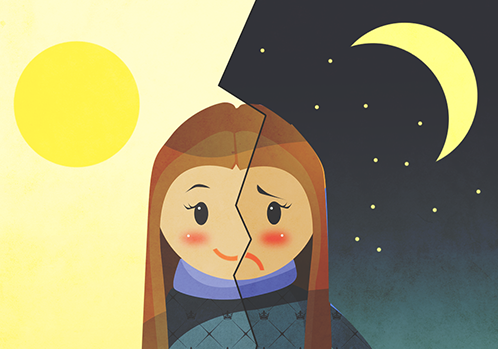|
Cold and flu are common during winter while heat stroke, typhoid and food poisoning are typical of the summer season. Seasonal affective disorder (SAD) is one type of depression that becomes prominent/restricted depending on the season-summer, winter, spring or autumn.
SAD starts in the late autumn reaching its peak during winter and goes away during spring and summer. SAD is sometimes called as ‘winter depression’ as the symptoms are most severe during December, January and February. But this does not mean that it never occurs during summer, only that they are less common, and this cycle is repeated every year. Symptoms & Risk Factors First of all, SAD is not a unique disorder by itself and is only a type of depression that shows seasonal behavior. Any person would be diagnosed with SAD only if he/she meets all criteria for major depression occurring in a specific season for at least two years. One thing is that, seasonal depression is more frequent than non-seasonal depression. Common symptoms of depression include:
Some risk factors of SAD include:
The occurrence of SAD is closely linked to reduced exposure to sunlight during the shorter autumn and winter days. The logic is that, minimum exposure to sunlight affects the working of the hypothalamus of the brain which can in turn affect: Melatonin Production: Melatonin is the sleep hormone that regulates your sleep pattern. Winter days are shorter and melatonin production increases, making you lethargic and sleepier. Serotonin Production: Serotonin is the hormone that affects your mood, appetite and sleep. Certain foods can elevate your mood and make you feel happier. For the complete list of such fruits, please visit the website www.firsteatright.com. Lack of sunlight can lead to lower serotonin levels which can make a person depressed. Vitamin D Production: Vitamin D is linked to serotonin performance and a decreased production of vitamin D is linked to clinically significant depression symptoms. Treatment Options SAD treatments fall under four main categories:
Comments are closed.
|
AVOID FRAUD. EAT SMART.+91 7846 800 800
AuthorDietitian & Nutritionist Dr. Nafeesa Imteyaz. Archives
July 2024
Categories
All
Dr. Nafeesa's Blog @blogspot |
- Home
- Written Testimonials
- Consult
- Clinics
- Blogs
-
Diet & Nutrition
- Diabetes Reversal
- IVF IUI not needed for PCOS PCOD Infertility
-
Medical Nutrition
>
-
Disease & Conditions
>
- Infertility | PCOS
- Diabetes Mellitus
- Cholesterol
- Hypothyroid
- Kidney Problems
- Hypertension
- Cardiovascular Diseases
- Liver Diseases
- Gastro intestinal disorder
- Cancer
- Metabolic Disorders
- Orthopedic Disorders
- Eating Disorders
- Dietary Recall
- Weight Record Filled By Clients
- Online Payment Transaction Details
- Online Clients Weight Check Form
- Our Program Package Service Charges
- Weight Record 2017 Clients
- Measurements sent by Clients
- Terms & Conditions Of Payment
- Thanks. Your Form is Submitted
- Video Testimonials
- Lifestyle & Wellness
- Lifestyle & Wellness Blog
- Allergy & Intolerance
- Weight Loss / Gain
- Weight Loss / Slimming Blog
-
Disease & Conditions
>
- Life Cycle Nutrition >
- Sports Nutrition >
- Integrity in Nutrition
- Knowledge Centre
© COPYRIGHT 2022. ALL RIGHTS RESERVED. FRST HEALTHCARE PVT LTD.
Dr. Nafeesa Imteyaz of First Eat Right clinic, is the Best Dietitian Nutritionist in Bangalore. Best Dietitian Nutritionist in Pune. Best Dietitian Nutritionist in Hyderabad. Best Dietitian Nutritionist in Chennai. Best Dietitian Nutritionist in Mumbai. Best Dietitian Nutritionist in Delhi. Best Dietitian Nutritionist in Kolkata.


